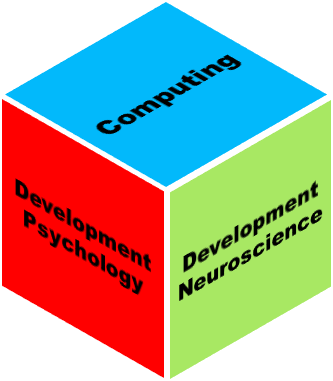Connected Intelligence, Networks & Evolution
We believe that intelligence follows an underlying pattern in all its forms — whether biological or artificial – and at different scales. Our mission is to advance knowledge at the intersection of cognitive neuroscience, human development, species evolution, complex systems, and robotics, forging a framework of connected intelligence. This will deepen our understanding of natural adaptation processes and allow for a more ethical adoption of AI as a human-driven tool.
Our inspiration, Professor Michael Commons, Assistant Professor at Harvard Medical School, Dept. of Psychiatry, has spent his career studying learning, development, and evolution. First animals, then people, and now machines. He developed the Model of Hierarchical Complexity, which is our theoretical background for finding te underlying pattern of adaptation and expansion at minimal cost – intelligent dynamics.
Our Vision & Goals
We envision a future where the principles of living systems development, evolution, and technology converge to illuminate the mechanisms of adaptive intelligence. By bridging disciplines and an array of different techniques, we aim to decode the emergent properties of intelligence and apply these insights to create more resilient, adaptive, and ethical systems — both human and artificial.
Our Core Principles
- Interdisciplinarity – Our core team is composed of experts in the fields of physics, mathematics, neuroscience, cognitive psychology, developmental psychology, complexity science, robotics. We welcome further expertise.
- Evolutionary Perspective – Understanding intelligence requires a deep exploration of how cognitive and neural architectures have emerged through evolution and at different scales, and eventually come across parameters that show how variance and invariance support evolution.
- Complexity & Networks – We study connected intelligence through the lens of network science, self-organization, and hierarchical processing, seeing hierarchies as the biological underpinnings of the brilliant compromise between expansion and cost.
- Biologically Inspired Approach – AI is the result of reverse engineering the brilliance of natural processes.
- Ethical Considerations – Our approach delves on the biologically plausibility of AI, reducing costs and optimizing efficiency, mimicking the processes underlying the cost-economy of living systems.

We are scientists, engineers, and thinkers. Join us in shaping the future of connected intelligence, one discovery at a time.
